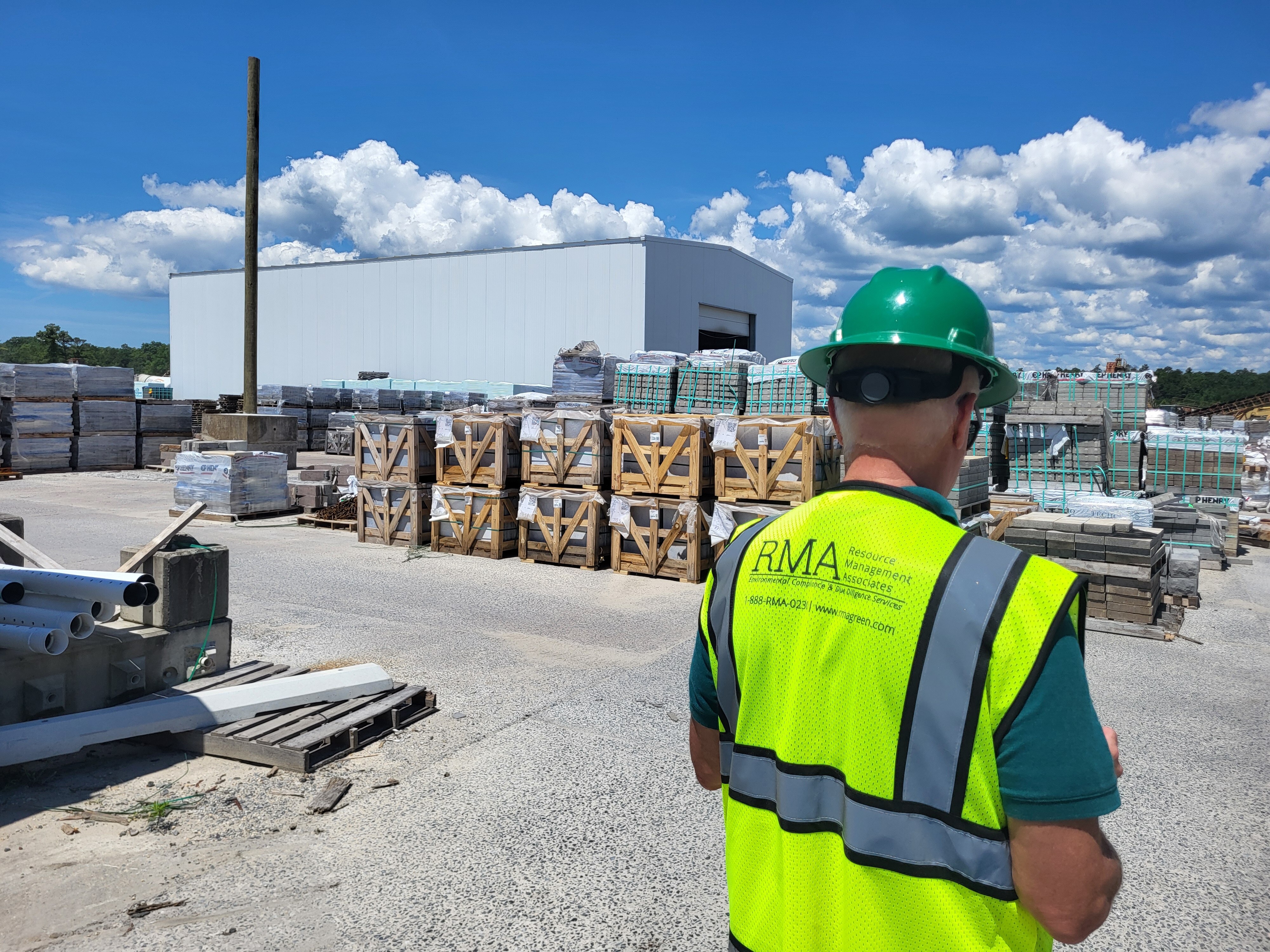What Your Auditor is Likely to Find - and Next Steps to Move Forward
Environmental audits serve as critical tools for businesses to assess their environmental practices and ensure compliance with regulations.
If you're preparing for your first audit and are worried about what issues may arise and how they'll be remedied - don't sweat it!
Here, we'll explore common audit findings and highlight proactive solutions, emphasizing the role of environmental audits and consultants in achieving environmentally compliant and successful operations. Let's jump in!
What is an Environmental Audit?
First, let's define what an environmental audit is. We cover the topic in depth in our post What is an Environmental Audit? - but for now, here's the short version: an environmental audit is a thorough examination of a company's operations and practices to ensure compliance with environmental regulations. Think of it as a detailed environmental inspection of your facility.
This process involves evaluating current procedures, identifying potential risks, and implementing corrective actions. By regularly conducting environmental audits, businesses can stay ahead of regulatory requirements, improve their environmental performance, and demonstrate their environmental commitment.
How to Get an Environmental Audit
Typically, environmental audits are conducted by an environmental consultant. These experts will visit your site, review your environmental program and operations, and then present you with a summary of their findings. Often, consultants will also be able to assist in corrective actions to remedy any problems found.
Shameless plug incoming – at RMA, our experienced team is dedicated to providing top-notch environmental auditing services to ensure your business stays compliant and sustainable. Contact us today to learn more about how we can help you achieve your environmental goals!

The 8 Most Common Audit Findings - and Their Solutions!
Environmental audits often reveal overlooked issues crucial for regulatory compliance and environmental performance. In this section, we’ll highlight common audit findings and provide practical solutions for each, helping businesses address these problems efficiently.
By understanding and addressing these typical pitfalls, businesses can avoid regulatory penalties and enhance their environmental impact. Let's explore these frequent audit findings and learn how to tackle them effectively.
1. Missing Plans, Permits, Approvals
Finding: Many audits uncover gaps in essential plans, permits, and approvals like NPDES stormwater permits, air quality permits, SPCC plans, and recycling approvals. Without these documents, businesses risk non-compliance and environmental harm.
Relevance: These missing documents can result in hefty fines, operational delays, and potential environmental damage. It's like driving a car without a driver's license!
Solution: Environmental consultants can assist in ensuring all necessary plans, permits, and approvals are obtained, maintained, and readily accessible. They provide expertise in navigating regulatory requirements that put you on the fast-track to compliance.
2. Non-compliance with Permit, Plan or Approval Requirements
Finding: You may have the necessary permit, plan, or approval – but are you following its requirements? A common audit finding is that businesses do hold required documents, like a stormwater permit, air permit, or SPCC plan, yet fail to adhere to their specific conditions. For example, your stormwater permit might prohibit discharging process water, but it’s happening anyway. Maybe your air permit requires tracking a generator's run time and emissions, but this data isn’t being recorded. Or perhaps your staff hasn't been receiving their required annual SPCC training.
Relevance: Not following the requirements outlined in your permits, plans, and approvals can lead to serious environmental harm and hefty regulatory penalties. It's like getting a license to drive, and then never paying attention to speed limits or stop signs!
Solution: Environmental consultants can ensure you stay compliant by helping you to understand your requirements and regularly reviewing and updating your management practices. They also help establish procedures and schedules and train staff on specific requirements (more on this shortly!).

3. Improper Materials Management, Handling, Reporting
Finding: Issues related to improper waste handling practices, hazardous materials management, and lack of Tier II Reporting & TRI Reporting (or reporting inaccuracies), are common audit findings that can pose significant environmental and regulatory risks.
Relevance: Improper management and reporting of materials can lead to environmental contamination, violations, and severe regulatory penalties. It's like failing to get your car's emissions tested during inspection – you might be unknowingly polluting too much and breaking the law!
Solution: Consultants assist in enhancing materials management protocols, and ensuring safe handling, storage, and disposal of materials. They help to accurately track - and when required - quantify and report material usage, releases to the environment, and waste management.
4. Poor Recordkeeping & Documentation
Finding: Audit reports often reveal issues with disorganized, incomplete, or missing records related to permits, plans, approvals, and training documentation. Do you or your staff really know what's inside that cluttered "environmental binder" stuffed in an office drawer?
Relevance: Poor documentation complicates a facility's environmental picture, leading to missed deadlines, violations during inspections, and non-compliance with regulatory standards. It's like driving without keeping your registration and insurance papers in the car – you're bound to get in trouble if you get pulled over!
Solution: Consultants specialize in implementing standardized recordkeeping forms, procedures, and digital systems to maintain accurate and up-to-date documentation.

5. Lack of Best Management Practices (BMPs)
Finding: Failure to implement BMPs tailored to specific operational activities can result in unnecessary environmental impacts such as water pollution, air emissions, and improper waste management. These are little activities that you can regularly engage in as part of day-to-day operations that make a big difference when it comes to your environmental program.
Relevance: Without BMPs, businesses may contribute to significant environmental degradation and fail to optimize their operations. It's like driving without ever getting your car serviced, leading to breakdowns and inefficiencies!
Solution: Environmental consultants collaborate with businesses to develop and implement tailored BMPs, optimizing practices and reducing environmental impacts. They provide expertise in BMP selection, implementation, and monitoring, ensuring compliance with regulatory standards and enhancing environmental performance.
6. Outdated Environmental Program
Finding: Outdated environmental programs that do not reflect current site conditions or regulatory standards are common audit findings. For instance, you might have an SPCC plan, but it hasn't been touched since you got it 15 years ago. Since then, your site has changed significantly and is no longer correctly reflected in the plan!
Relevance: An outdated program can hinder operational efficiency and fail to meet current environmental standards, leading to non-compliance and violations. It's like using an old driver’s license with the wrong address – it doesn't match your current situation and could cause confusion and legal issues!
Solution: Environmental consultants conduct comprehensive reviews and updates of environmental programs, ensuring alignment with your current operations and current regulations.

7. Staff Uneducated on Environmental Program
Finding: Lack of awareness among staff regarding environmental regulations and their implications for daily operations is a significant audit finding. Non-existent or inadequate environmental training can lead to unintentional non-compliance and environmental risks.
Relevance: Untrained staff can inadvertently violate regulations, causing environmental damage and legal issues. It's like letting someone drive without ever teaching them the rules of the road – increasing the risk of accidents and violations!
Solution: Consultants offer specialized training programs to educate staff on environmental laws, compliance requirements, and best management practices (BMPs). They facilitate environmental education and provide resources to foster a culture of environmental awareness and responsibility within the organization.
8. No Vision for Future Environmental Program
Finding: Lack of a structured approach or goals for continuous regulatory improvement, environmental management systems, and sustainability initiatives can hinder long-term environmental performance and compliance.
Relevance: Without a future-focused vision, businesses may struggle to adapt to evolving regulations and sustainability standards. It's like driving without a clear destination in mind, leading to aimless wandering and inefficiency!
Solution: Environmental consultants collaborate with businesses to develop strategic environmental management plans, outlining goals for sustainability, energy efficiency, and cost savings. They facilitate the adoption of environmental management systems and provide guidance on achieving continuous improvement through regular assessments, goal setting, and stakeholder engagement.

Wrapping Up: Key Audit Insights
Environmental audits play a pivotal role in driving continuous improvement and demonstrating a commitment to environmental responsibility. They ensure businesses meet regulatory requirements while contributing positively to environmental sustainability.
By addressing common audit findings, businesses can achieve regulatory compliance and enhance their environmental stewardship. Implementing sustainable practices and navigating complex regulatory landscapes are essential steps toward fostering a culture of environmental awareness and responsibility.
Leveraging the expertise of environmental consultants can significantly aid in this process. Their specialized knowledge and experience help guide businesses in implementing best practices, ensuring compliance, and making a positive environmental impact. Investing in regular audits and expert guidance promotes long-term sustainability and operational efficiency.
Ready to get started? Reach out to us here at RMA for expert auditing services! Our team of experienced consultants is ready to assist you in achieving compliance, enhancing sustainability, and driving continuous improvement. We've conducted environmental countless audits across various industries since 1992. No matter your business size or sector, we have the expertise to help you meet your environmental goals.
Additional Information on Environmental Audits







